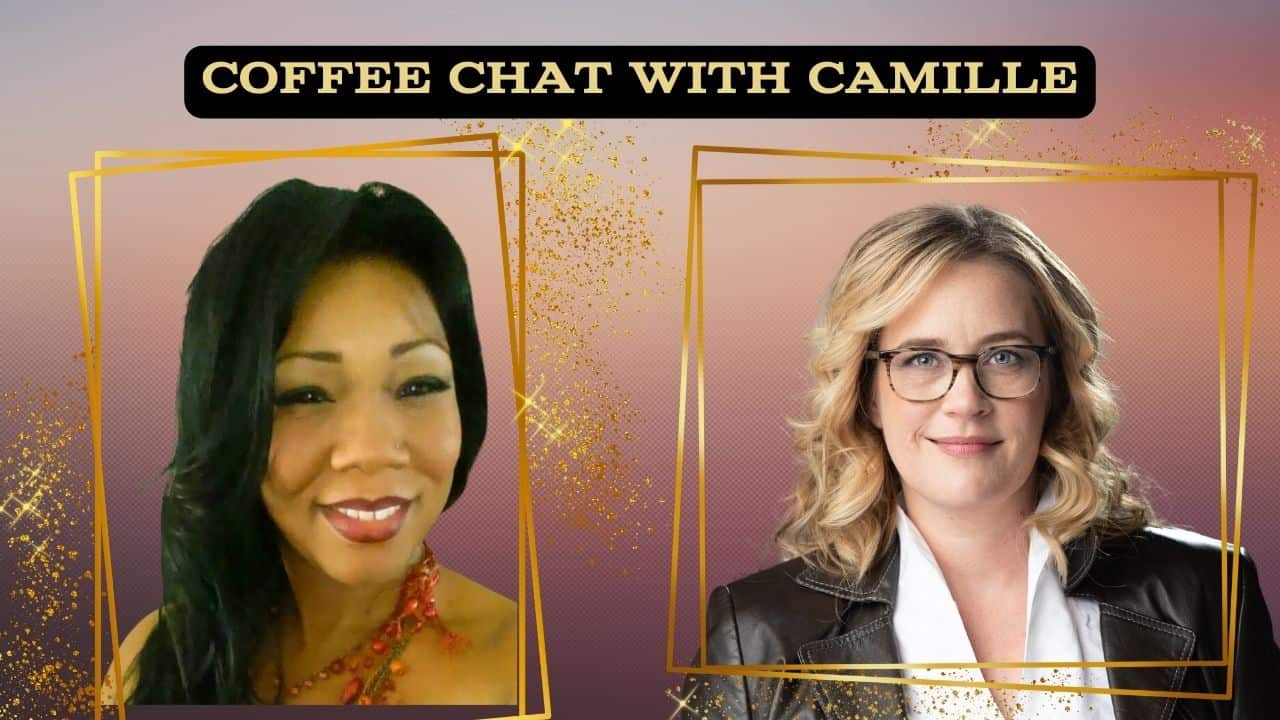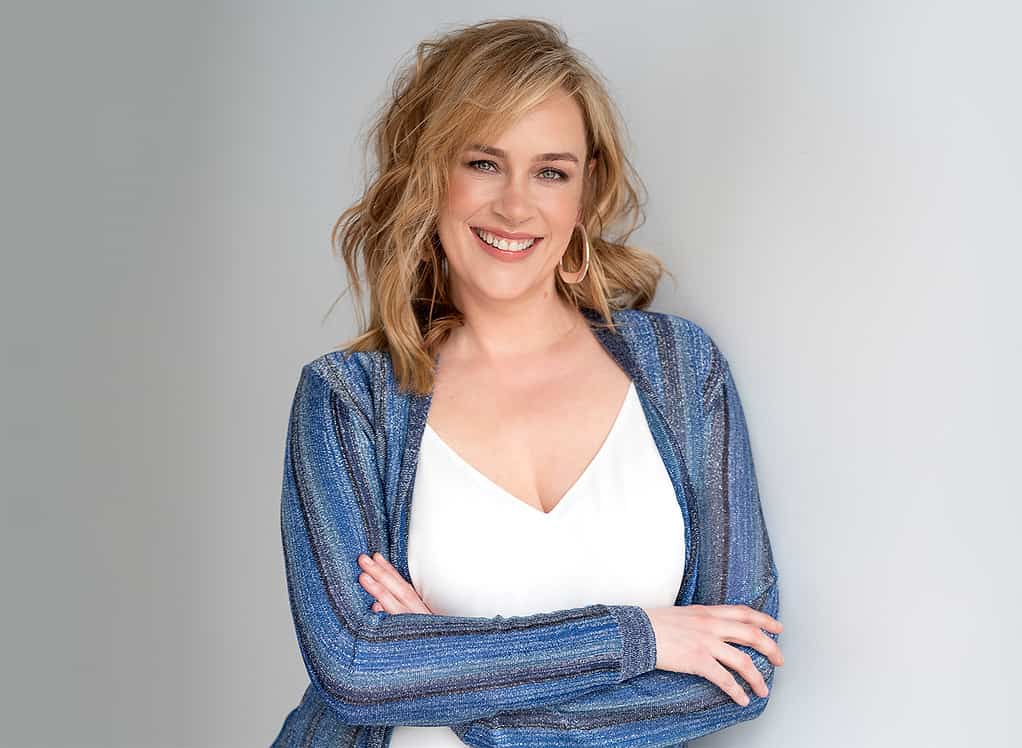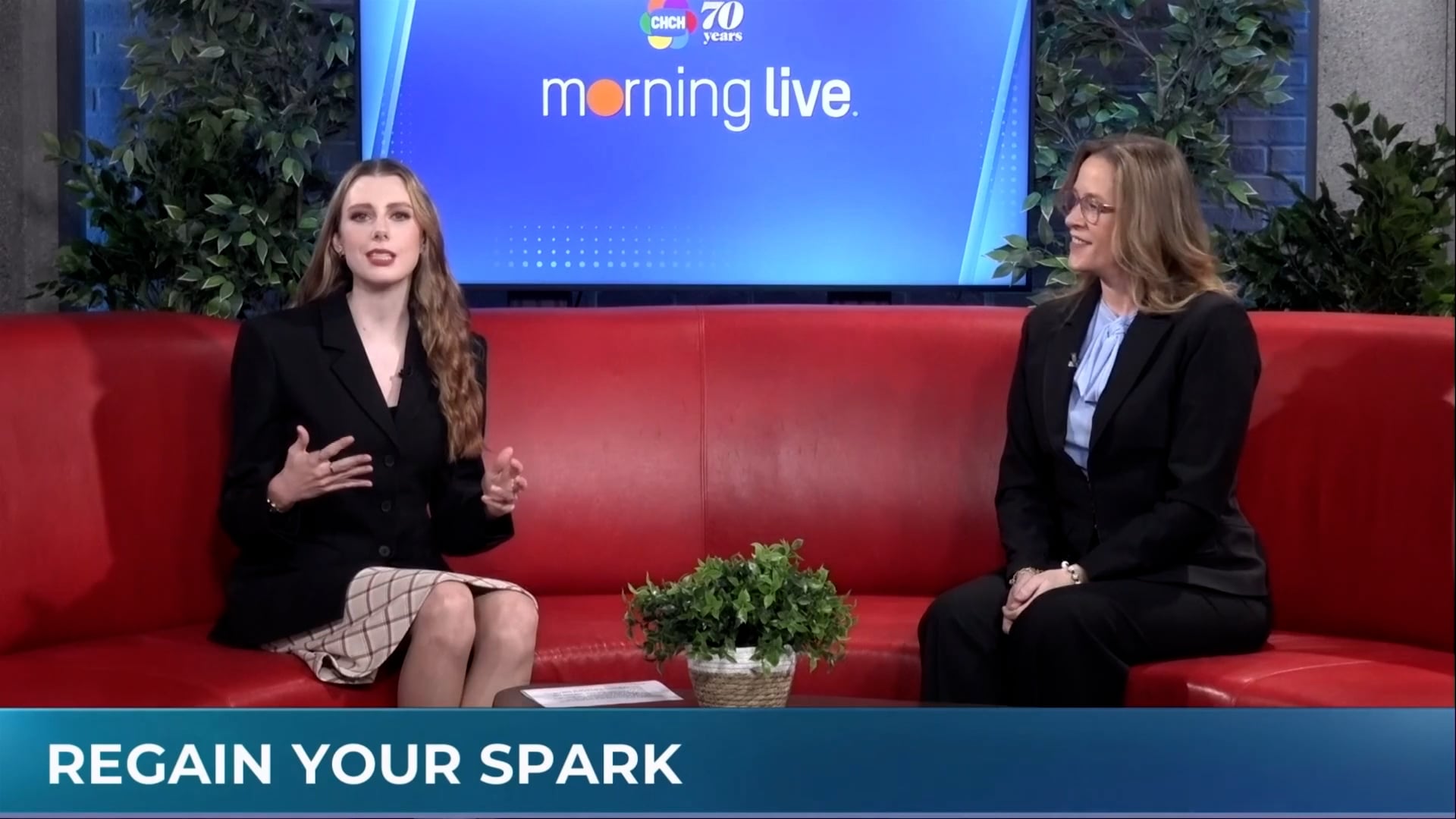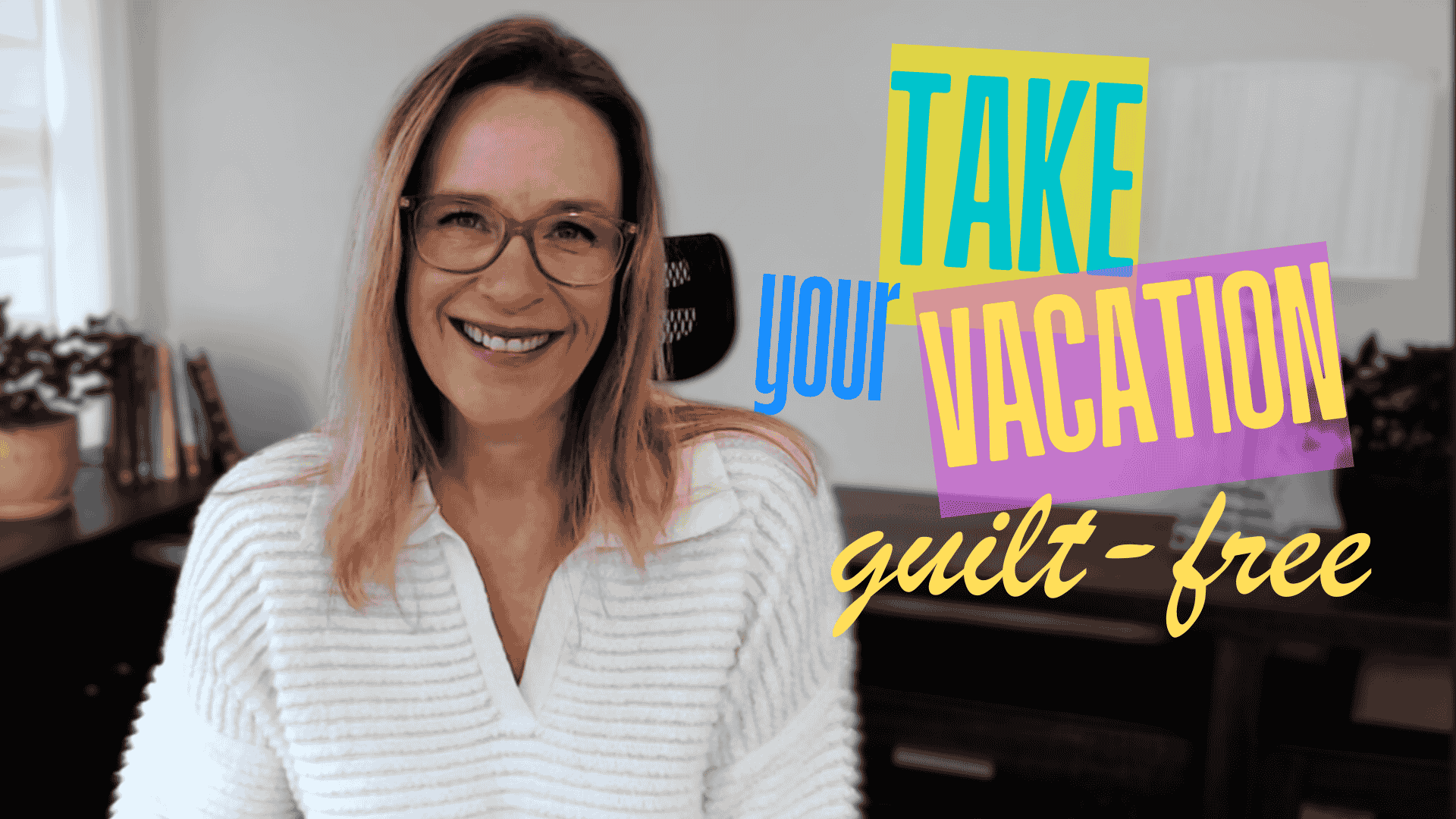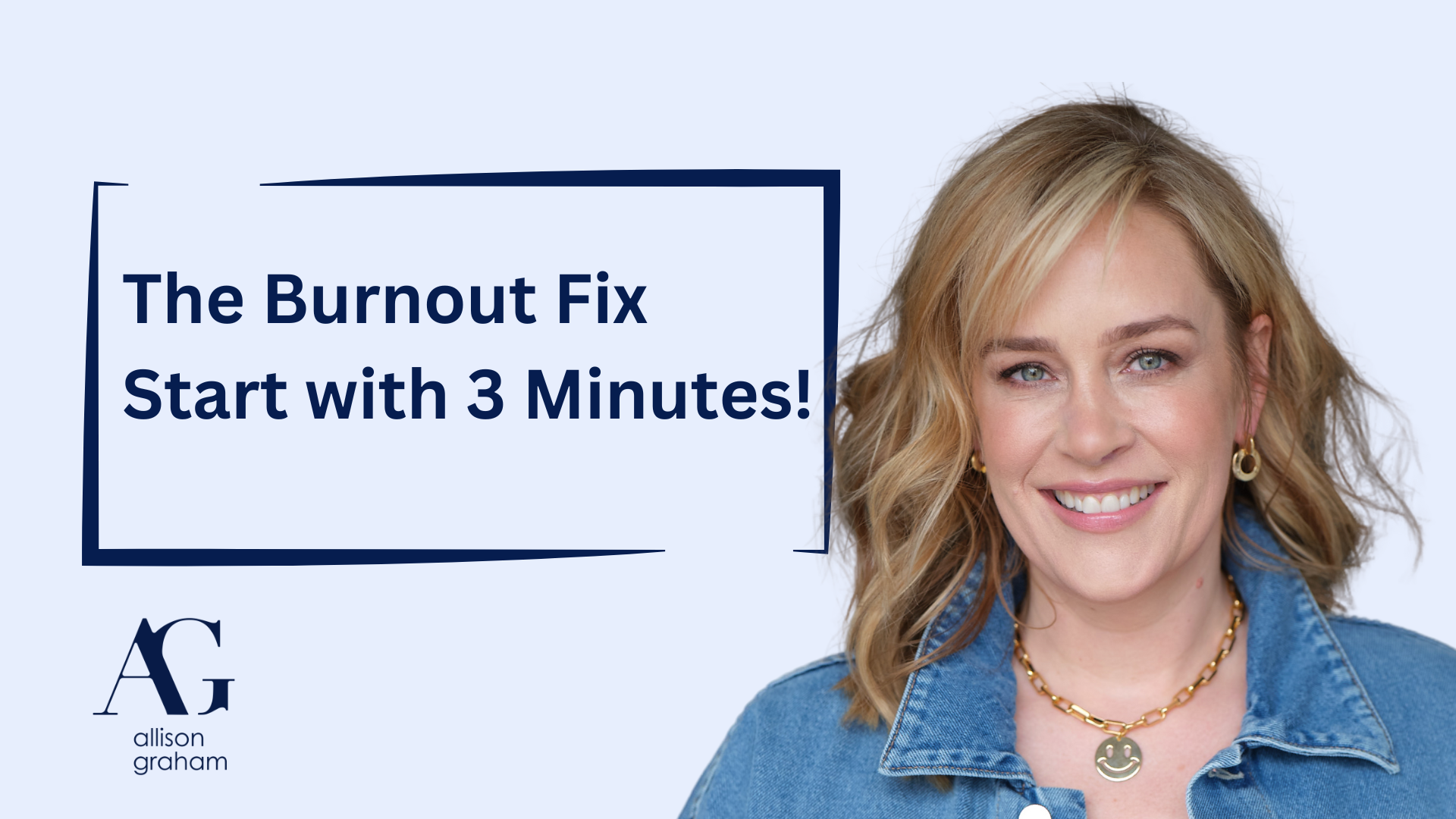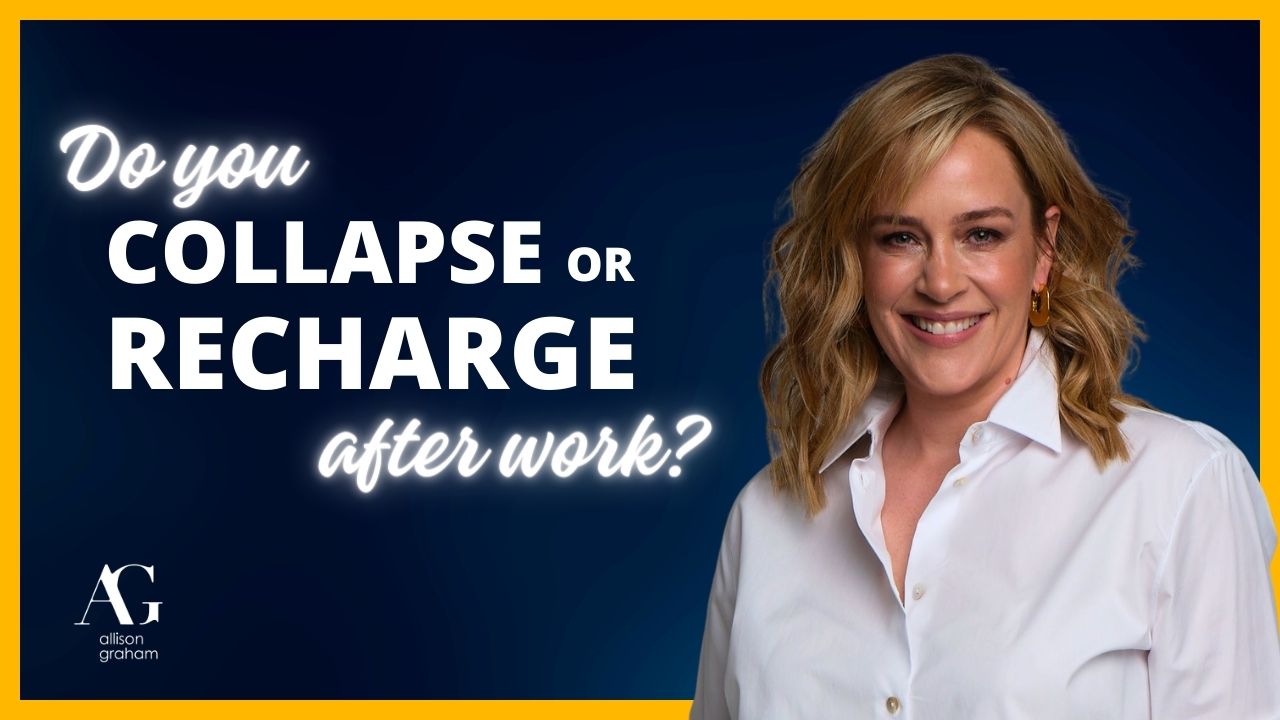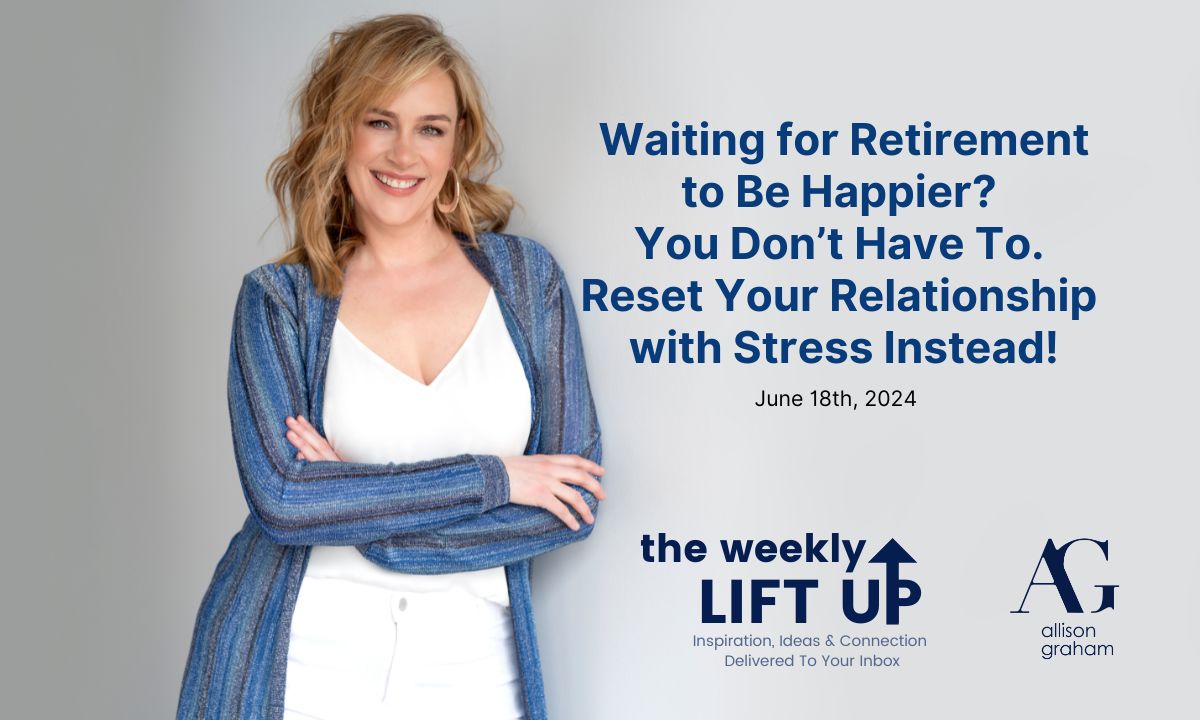This week’s guest on Coffee Chat with Camille on Blog Talk Radio is Allison Graham is a keynote speaker, author and consultant who works with highly-accomplished men and women who love their work, but want more mental and emotional space away from the constant stress of the daily grind. Her last book, Take Back Your Weekends: Stress Less, Do More, Be Happier is giving hope to professionals across the globe that they can have it all. Stay tuned for news on her next book called The Stress Illusion which will be released later this year. You may recognize her from media outlets like CTV, CBC, and Breakfast Television. If you’d love an extra dose of inspiration each week, you’re invited to follow Allison on LinkedIN and join Allison’s weekly Lift Up at https://allisongraham.com/liftup.

https://coffeechatwithcamille.com
Transcript of Coffee Chat with Camille Interview with Allison Graham on Blog Talk Radio (Unedited)
SUMMARY KEYWORDS
stress, allison, pain, day, alison, neuropathic pain, coffee, capacity, camille, coping, order, stop, emotional, resilience, guests, fatigue, ontario, storyline, list, hard
SPEAKERS
Allison Graham, Coffee with Camille
00:00
Blog Talk Radio
00:00
Blog Talk Radio
Coffee with Camille 00:08
Hi everyone. This is Camille from sunny California. And you’re listening to the coffee chat with Camille show, which is a podcast series that interviewed various guests about real life topics for people who love to learn. Hi, everybody, the name of our show here on coffee chat with new is a stress illusion defy the lives that can’t be stressed with our wonderful guest, Allison Graham. Allison is a keynote speaker, author and consultant who works with highly accomplished men and women who love to work. But what more mental and emotional space away from the constant stress of the daily grind. Her last book, take back your weekend stress less to more be happier, is given hope to professionals across the globe that they can have it all. Stay tuned for news of her next book called The stress solution, which will be released later this year. You may recognize her from media outlets like CTV, CBC, and the breakfast television. If you love to hear to have an extra dose of inspiration each week, you’re invited to follow ally shin on Linked In. And you can join Alison weekly on lift up at Allison graham.com forward slash lift up. Okay. And I think our magnificent guests is waiting. So let’s get going with our interview. Right.
Allison Graham 01:56
So lovely to chat with you, Camille. Hello, how are you?
Coffee with Camille 02:01
Hi, I’m seeing every wonderful, it’s a pleasure to be able to chat with you as well. And I just want to
Allison Graham 02:07
Well, just wonderful. Thank you. And I apologize for the background noise as the I got stuck in traffic. So I’m about one minute away from pulling over and being able to get on the highway. So if there’s background noise, we’ll test how quiet my car is you can you can be in charge of that. So
Coffee with Camille 02:30
okay, it’s okay, no worries, okay, we’re gonna go ahead and get into this interview, there’s so much to unpack. The first question is, What do you mean by the stress illusion?
Allison Graham 02:44
Well, in my journey of my own work and experience in working with hundreds of professionals, I started to notice some themes about how we’re being taught to understand what causes our stress, how it’s measured, and how we’re expected to deal with it. And so that combined is what I call the stress illusion. And I think if we can change the conversation about how we’re supposed to effectively navigate stress, we can actually shift society’s overstressed culture.
Coffee with Camille 03:18
Wonderful. And then what is personal capacity design?
Allison Graham 03:25
This is my philosophy around the fact that, you know, one of the illusions of stress is that we can, you know, productivity hacks are going to help us get more organized and feel less stress. Not true, you can be as organized as you want to be, although it is lovely to be organized, and still feel that sense of destructive stress. And so with the personal capacity design, what I do with my clients is I say, Okay, if you had a perfect day, week, month, in a year, and all of those need to be designed differently, what would that look like? And then we use the strategies in order to figure out how do we fill that in? And not just from a perspective of what do you need to do? But what do you think, feel? And how are you what’s your essence around and so we take all of that in to account and that becomes the personal capacity design and when I say personal capacity, I really mean those resources that you have available to you to do think feel and be each and every day. And most professionals are stuck on repeat. They’re just doing the same thing over and over and over again got and they’re in these patterns that may not be serving them to the best of their you know, their essence, right? Like they may feel. Many people come to me when they feel like they’re suffocating. Because there’s no space there’s no capacity each and every day.
Coffee with Camille 04:57
Okay, and then how can personal capacity Design impact our mental health, happiness, our overall career success?
Allison Graham 05:07
Well, I think it’s really about creating space. Right? If we are so at a point, and it can be all like maybe you’ve had these days where you just feel like you can’t even breathe, or you don’t have a minute to think or to go to the loo, right? You’re just so jam packed. And that is not healthy for our asset, like our beam, right? We can’t, we can’t be fully optimized and how we’re supposed to show up in our life, feel fully fulfilled, productive, have you know, optimize our performance, or even just be productive, innovative, like you think about all of those things that so many companies and organizations are trying to find their way to? How do we make our people be more creative and innovative? Well, the way that they’re approaching their days, mentally and emotionally, are often just creating this level of suffocation that you’re never going to get that full, full opportunity and full beauty,
Coffee with Camille 06:10
pain, and what is the best way to stop a negative inner critic?
Allison Graham 06:15
Oh, this was something I learned the hard way. Because I used to have an incredible the judgmental inner voice. I don’t know if you’ve ever had that experience. But it was shocking what I used to say to myself, now that I look back, but one of the key tips on this is you need to give your internal voice sternal presence. And what I mean by that is sometimes when our thoughts are just sort of spewing around in our mind, they’re so ambiguous, and they can just keep spinning and spinning and spinning. And it’s really hard to hold on to them and to look at objects at them objectively. And so if we can just grab a post it notes or some sort of a piece of paper and scribble down the thought that is negative, then we can look at it objectively, because we can’t have objectivity, while at the same time having the thoughts. And that’s why it’s like, Okay, put it down on paper. Let’s look at it, is that true? And then going through the process of neutralizing that storyline is so critical, so that we can stop beating ourselves up inside of ourselves, you know, which I think a lot of people are doing. And there’s so much wasted capacity in our mind to, you know, just be angry with ourselves or judge ourselves or, you know, say those negative things like, Oh, I’m such an idiot, how can I do that? Oh, it was like, it even feels awful for me to say that now. But I used to say that all the time. And the only way I could stop it was by writing it down on a piece of paper in the moment, not like some big complicated journaling activity. Just grab it, post it, write down the word, look at it objectively, and then neutralize the storyline.
Coffee with Camille 08:09
That’s wonderful advice. What would you say to leaders who want to quit their jobs, or business because they are sick or distress,
Allison Graham 08:19
you do not have to quit in order to right size, your stress. And I remember a dear friend of mine had a boss who has just had really toxic behavior. And she was so unhappy. And she was so stressed. And you know, she would call me on her way home from work and be like, I can’t take this one more minute. And she she wasn’t a client. So I’ve learned you know, don’t give your friends advice. And she didn’t ask for it. And so I just watched it play out and she ended up quitting your job and went to another company. And that was your really great for 30 days. And then that old boss got recruited by the same company and became her boss again. So Camille, if we expect by changing our external circumstances, that we are going to change our stress levels, we actually are always at risk to whatever is happening around us. And so my philosophy is about taking 100% responsibility for how you’re interpreting everything that’s happening around you so that you’re not creating destructive stress unnecessarily. And we don’t have to change those circumstances because we may never be able to change them. Right, we have to figure out how do we operate and be okay with the system stances now, because eventually you’re just going to take the problems with you. Right, like your patterns are all yours. And, you know, wherever you go, there’s going to be you know, lots of work have to do, right? There’s always going to be pressure, there’s an the more successful you are the problems are the same, this little, little thing to them. But you have to figure out how can you be okay? In the middle of what you’re already doing?
Coffee with Camille 10:19
And how can you stop feeling burnout when you have way too much to do and too many responsibilities.
Allison Graham 10:29
So first of all, stop expecting the list to finish. Like, you know, people say, To Do lists, I’m gonna get to the end of my list. And they feel like, you know, a lot of people say, Oh, I feel like a failure, because I can’t get it all done. I’m like, Yeah, because a list insinuates that one day is going to end. Like, it’s never going to end it’s attached circle. Right? It just keeps going round and round and round. And so if you’re emotionally tied to the fact that you have a long to do list, once again, you’re always going to be at risk for destructive stress. And so we have to break that emotional connection, the, the tasks you need to do, the obstacles you need to solve, those are independent of your emotional and mental stability. We have to reframe how we’re interpreting all of that that is happening around us. So that we can be okay, no matter what’s in the bank account, no matter what is in the on the list that isn’t done yet. Like those those external factors. We want to be able to be objective with them, not emotionally charged by them. Not really the work I do with my job. I just say that’s really the work that like, take some time to really understand how to do it, right. But when I see my clients go from feeling totally, like they’re suffocating to being like, oh, yeah, I gotta do all that stuff over there. And right now, I’m gonna focus on my family time. And I’m not going to be emotionally charged by that, or I’m actually going to go to sleep without thinking about that list. That that transformation is like, there is the beauty. There is where you can love your life again, love your work again, without the resentment of having too much pressure. And that’s what drives me each and every day to see that happen.
Coffee with Camille 12:39
And then, thank you so much. How do you continue to work with intense chronic neuropathic pain?
Allison Graham 12:47
Yeah, that’s, that’s a big topic. I love this can be a we’re just going question by question. We are on that topic alone. So every, we maybe need to back up a little and just share that I have chronic neuropathic pain. It was caused by a surgery that happened, it was routine surgery, and things went wrong, as sometimes they do. And it really shifted my life because I went from being someone who was so like, just committed to, like, I had a post it note on my my mirror in the bathroom, that said, deserves to hit the pillow. And so I would work 18 hour days, and I, I thought that if I didn’t do enough to serve other people, or to serve society as a whole, that I had to get that like I wasn’t allowed to go to sleep. It was so much pressure I used to put on myself. And then the surgery comes along and I go from having 18 hour, you know, a type personality over achiever, desperately seeking validation and trying to, you know, serve everybody else’s agenda instead of my own. And I went from that lifestyle to having a surgery. That then took me to having two to five hours of functionality a day. And I remember sitting across from my neurologist at Mount Sinai Hospital, and he said, Alison, you need to understand your pain is never going away. You are never going to be off of pain medication. And it’s time for you to reevaluate your expectations for your life. And you like now’s the time we got to start talking about you going on disability. And I have I left that hospital and I wish I could tell You I was like, you know lameness you know, resilience wonder woman walking out of there but no, I but I was determined. I was like, Oh no, that’s not the path. That’s not going to be and I was so afraid. And that began the next morning began my operation fix my pain. And it’s when I started to discover discover this illusion about stress and you know how we’re approaching resilience and all of the, the truths are out there at that, you know, just made everything harder. And what I noticed is that as my destructive stress increases, so does my neuropathic pain. And I believe that’s because there’s so much work that my subconscious mind and my my conscious mind needs to do in order to manage the the nerve pain, even now, like 17 years later, that, I have to be sure that I always have the space and the resources available to manage the pain so I can still do the work and half the pain. And one of the ways, so that sort of sets up the insights and the story of where it came from. But one of the big key turning point was when I stopped fighting my pain, like Camille, I would wake up in the mornings, and I had like three words to say, and they weren’t pretty, right. Like, I was like, Oh, my gosh, this hurts, right. And it was a lot more colorful for that. And like the whole day was fighting this, this knife that feels like it’s twisting into my body. And now when I feel that intensity, what I do is, instead of getting angry with it, and fighting it, I like go into it, and I’ve made friends with my pain, which sounds really weird, I’m sure what that’s done is it’s allowed me to free the capacity that is, or was stolen by the negativity, the anger towards the pain, because that if I use my capacity to fight the pain in an angry, bitter, resentful way, what that does is it steals the capacity for me to be available to fully serve my clients, and be with the people in my life, who I want to spend time when and to create and to write and to do all of that. So I had to make a decision. How am I going to allocate my resources. And it no longer could be by being bitter about the pain, angry at the pain resenting the surgeon, I had to forgive him. You know, all of that was just wasted capacity. And so that’s really how I think about pain and how I managed my company, even with it.
Coffee with Camille 18:14
That’s excellent. And what is coping fatigue, leadership fatigue, and how do you overcome it?
Allison Graham 18:23
Coping fatigue is coin I, I a phrase I coined I guess I thought it was, the idea is, is you are exhausted from having to be resilient. So a lot of times, if you were to Google coping fatigue, you would get Google would send you something that says, how to cope with being tired. That’s not what we’re talking about. We’re talking about the relentless, you know, proverbial metaphorical punches that life can throw. And there are sometimes like, when you say to certain people who you see off in the distance, like, I can think of a dozen friends of mine right now and people in my life, who I just like, oh, my gosh, you’ve gone through so much. And you know, then you’ll say to them, you’ll say, Gosh, you’re so resilient, and they’re like, I don’t want to have to be this resilient. Right? Like, I just am sick of having to be resilient. And it’s like, I have resilience, fatigue or coping fatigue. And that’s how that came to be. And so, really, I think one way, you know, and I know we’re just firing off all these different ideas here to me all but hopefully, just a little something will stick with each of your listeners. But I think that the key here is we have to look at each challenge individually. No 111 thing is a compound. So let’s use this on like a really simple idea of how a morning can get into a bad routine. So we’re, let’s say you wake up late, you forgot to charge your phone, your alarm didn’t go off, you know, your kids are not waking up, they’re late. And you know, we forgot to make lunches and sign a paper, and then you get outside and you go into traffic and somebody cuts you off, and then you, you know, are in the lineup at the Starbucks and they get your order wrong, and then you spill coffee on you. And, you know, like, it just like is this little sequence of annoying events that have happened, and you arrive at your work and you say, oh, my gosh, I’m having the worst day. But you’re not actually having the worst day you’re having a series of inconvenience issues, that when you look at each one, you just have to solve it and deal with it. But when you look at challenges as a whole, when you look at all of those things put together well, yeah, of course, then the storylines become, I’ve had a I’m having a bad day. And so when we think about coping fatigue, and when you feel like, it, just the punches won’t stop, right you, you lose your job, or your company’s at risk of going bankrupt or, you know, there’s that and then you know, somebody you love gets a diagnosis, and then you are having health challenges. And, you know, like all of these things pulled together, each one of those legitimately deserves your emotional attention. But when you combine them, and you put them with this big umbrella over them, like, that’s when it just makes everything harder. And so I know it takes a lot of emotional discipline, in order to separate each of those things. But like, really just looking and this is where pen to paper, and looking at here are all the challenges I’m going through. And like that, that objectivity. You can say, You know what that legitimately deserves heartbreak that legitimately deserves anger, genuinely deserves fear. But we don’t want to pull the fear over to this thing that doesn’t actually deserve fear. Right? And it’s like, people just have their emotions and how to blanket everything. And I’m like working with people to figure out how do you identify the emotion and decide what it actually is in relation to, and then sort of put up a bit of a wall in between those two things. So they don’t combine the intensity?
Coffee with Camille 22:54
And make sense? Wow, isn’t it? Yeah,
Allison Graham 22:58
you know, for coffee chat is a big concept. It is so powerful when you get it.
Coffee with Camille 23:07
That’s excellent. And then our last question is how do you spend more time in your sweet spot of performance, productivity, profitability, and personal fulfilment?
Allison Graham 23:22
Well, it’s a little bit of everything we just talked about it is really comes down to the capacity design, how are you allocating those resources that you have each day to do to think, to feel and to be and that, like, I’m just going to encourage you to look at a day and find those repeating moments of angst, right, those times that you know, you’re going to be irritated that you’re going to feel off of your game and out of your flow. Find those times and look at them and then strategize and problem solve for each one of them individually, one at a time. So that you can start removing some of these, these things that are taking you out of your sweet spot of performance, productivity, profitability and personal fulfillment. And like if we can eliminate some of those repeating moments of angst, and then have that better emotional discipline, faster problem solving, a neutralized storyline. All of that comes together to give you more of an opportunity to be in that suite.
Coffee with Camille 24:43
Okay, and I want to thank you. Thank you. Thank you. This has been outstanding, listening to your expertise and advice. And also I just like to know what your favorite coffee or hot beverage is.
Allison Graham 25:00
Well, I am. I’m going to be embarrassed to say this publicly, but I won’t be embarrassed because that would be negative storyline. But I am. Coffee, nothing in it. And that’s because I learned early in my university days that if I didn’t take anything in my coffee, I didn’t have to have creamer sugar in my dorm room. And so that’s why coffee and four liters of water a day. That’s it, and then the odd glass of red wine, but that’s it.
Coffee with Camille 25:36
Okay, excellent. Thank you so much, Alison. It’s been a pleasure, a pleasure to have you here. And talking to my audience or to our audience. And also, did you want to, to just leave with the listeners, your social media handles?
Allison Graham 25:58
Absolutely. So I My website is Allison graham.com. And you can come and visit me there with all the links, but I’m most active on LinkedIn. And the other channels are Allison D. Graham. So Alison, Don Graham, and YouTube is just Allison Graham. So yeah, come find me. Come say hello. And if you have questions, by all means, shoot them out. That’d
Coffee with Camille 26:25
be great. All right. Thank you so much again. And please try safely. And I look forward to hopefully having you on in a future. Thank you so much, Alison.
Allison Graham 26:39
Thank you very much.
Coffee with Camille 26:40
You’re welcome. Bye for now. Okay, everyone, that was a magnificent, Allison Graham. I don’t know about you, but I really learned a lot. And actually, I’m sure you did, too, if you just pay attention to each of these answers, because there was so much to unpack, I absolutely took away from Allison’s interview, about how we can compartmentalize the things that we do to void ourselves of stress. And I know for me, I did get a lot to do. Just putting these shows together, and making sure that my guests are taking care of and making sure that I am here for them. And then occur for I have a home life. And then I have been teaching English. So it can get a little bit overwhelming to be quite frank, but with a lot of the expertise and advice that Allison just gave us, I have just learned some things like write, write down my to do list and don’t try to like do it all at once, you know, and figure out how to also separate my emotions right? Or our Oh, I have 90 seconds left. So let me hurry up here. But also how to just really learn how to deal with our emotions and make sure they’re that we’re putting them in the right place. Right. So it anyway, I am grateful and thankful to Allison she’s a keynote speaker, author, and an awesome consultant. Alright, so until next time, everyone. I will be back in about a half hour with my next guest. Thank you so much for listening to Coffee Chat with Camille. Bye for now.
